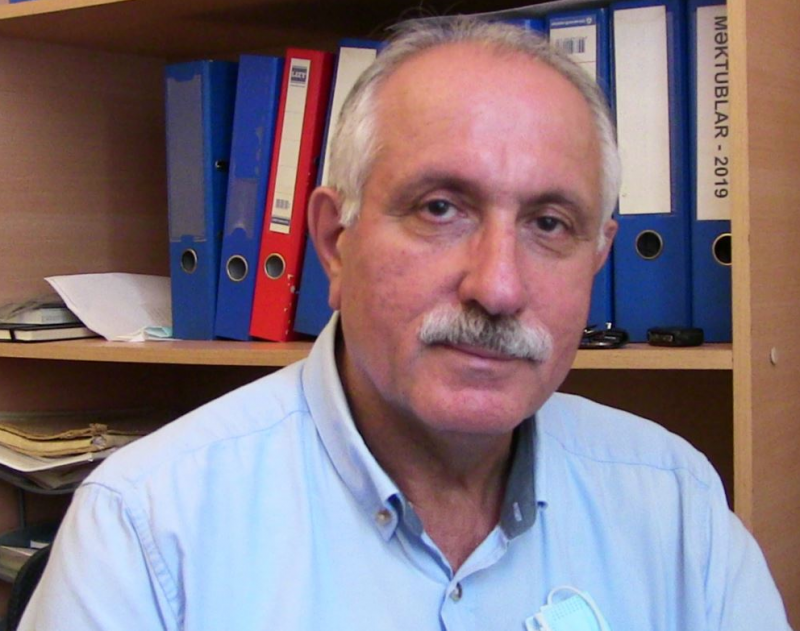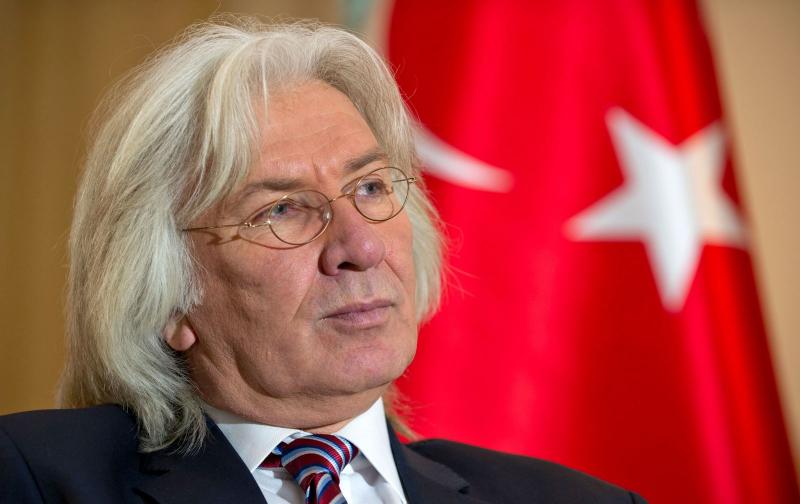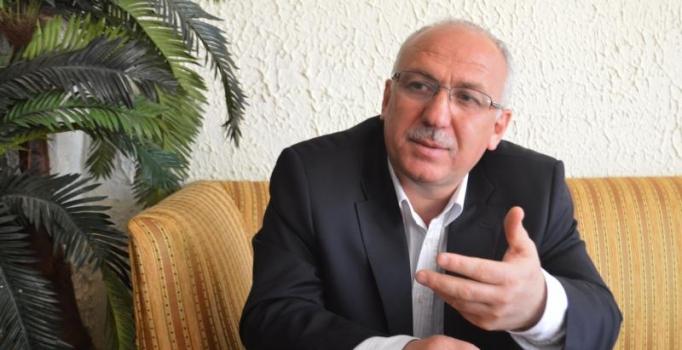
On the days when we leave the summer months behind and greet the spring, we witness the political-diplomatic moves for the formation of new balances in the Caucasus region.
In the eight months that passed after the 44-day war that ended with the Russia-Azerbaijan-Armenia agreement on November 10, 2020, while Russia was leading the situation, the declaration signed in Shusha city, where President Erdoğan went on June 15, was remembered in terms of guaranteeing Turkey-Azerbaijan relations.
The Prime Minister of Armenia, Nikol Pashinyan, on the other hand, faced a coup attempt 4 times in the period until he consolidated his seat to a certain extent in the parliamentary election on 20 June.
On September 28, the moderate statement of the Turkish Presidential Press Secretary, İbrahim Kalın, on the normalization of relations with Armenia came to the fore.
Then came the statement of Azerbaijani President, Ilham Aliyev, regarding the normalization of relations, and Aliyev even stated that he could meet with Armenian Prime Minister, Nikol Pashinyan, whom he humiliated by making fun of him many times during the 44-day war.
Georgian Prime Minister, Irakli Garibashvili, on the other hand, took the initiative with the support of the USA and first met with Ilham Aliyev in Baku and then with Nikol Pashinyan in Yerevan on 9-10 October to start the new era and presented the suggestions.
After the war, official and unofficial representatives of Azerbaijan and Armenia met in Georgia on 29-30 September and started the negotiations in the new period.
According to the information received, at this point, all of the parties involved in these matters lean towards the dialogue, watching the developments and preparing to take positions accordingly.
Here is one of the participants of the first face-to-face conversations in the new period, Mehman Aliyev, the Director of Turan News Agency, which is Azerbaijan's only independent media institution, making the following evaluations for Independent Türkçe regarding the developments that have taken place since the first days of autumn:
Initiatives to stabilize the region by ending the thirty-year conflict between Azerbaijan and Armenia in the South Caucasus are gaining momentum. The result should be the establishment of peace and cooperation among the countries of the region.
The main purpose of the meeting of Georgian Prime Minister, Irakli Garibashvili, with Armenian Prime Minister, Pashinyan, in Yerevan after his first meeting with Azerbaijani President, Aliyev, in Baku on 9-10 October was to present the 3+2 (South Caucasus countries, USA, and EU) format of the 'Conflict-free neighborhood initiative' to the parties.
Undoubtedly, the 'Caucasus House', which came to the agenda of three countries in the first years of independence, which lasted 30 years, has become more current today after so many mistakes and tragedies.

Mehman Aliyev
The mediation mission undertaken by Irakli Garibashvili is not outside the interests of the leaders of Azerbaijan and Armenia, and the circles of the Georgian government state that the maps of the mined areas in and outside of Karabakh were given to Azerbaijan in exchange for the return of the Armenian war criminal hostages in the hands of Azerbaijan, and that is why they want the mediation to continue.
After the Georgian Prime Minister had a face-to-face meeting with both leaders, Prime Minister Pashinyan met with President of the Russian Federation, Putin, in Moscow on October 12, and during the phone call between Ilham Aliyev and Putin, the latest situations in the region and the next processes were discussed.
As a result, it will not be a surprise that a tripartite meeting will be held in Moscow in the near future, hosted by Vladimir Putin, with the participation of Aliyev and Pashinyan. The leaders have now declared that they are 'ready to meet without limitations of time and place'.
In this case, we have to say that there are actually two mediators and one of them does not deny and completes the other. Georgia is the neighboring country of the 'Caucasus House' project, while Russia is the leading country of the CIS, the OSCE Minsk Group Co-chairman, and also the architect and implementer of the tripartite agreement that ended the war on November 10, 2020.
The possibility of cooperation between Turkey and Russia, which has been in close consultation on a number of regions from Libya to Afghanistan, should not be underestimated in these cross and parallel negotiations.
In this context, the 3+3 'Six Platform' put forward by Turkish President Erdoğan can be seriously brought to the agenda in the light of new realities. We have been receiving information that Georgia, which rejected this formula on the grounds of 'Democracy and EU perspective' at the beginning, looks at it warmly in the future.
Georgian senior officials stated to our agency that 'they will applaud Russia if it plays a constructive role in solving unresolved regional problems'.
Furthermore, there may be an attempt by Irakli Garibashvili to mediate between Erdoğan and the Armenian Prime Minister. There are currently three very serious issues on the table in the talks between Azerbaijan and Armenia, these are opening of transport routes, delimitation and demarcation of borderlines, and determination of the status of Khankendi and its environs, which are currently under the control of the Russian 'peacekeeping forces'.
In order to solve these problems, a commission consisting of high-level officials from Russia, Armenia, and Azerbaijan was established. While it is discussed that Prime Minister Garibashvili may have initiatives in this direction, the issues that make Russia's hand strong in this regard in the November 10, 2020, Putin-Aliyev-Pashinyan agreement draw attention.
Despite the invitation of the foreign ministers of Azerbaijan and Armenia to involve the OSCE Minsk Group in the process, no progress is expected in that area yet. It seems that we are entering a long process again.
The last attempt to normalize relations between Turkey and Armenia was made in 2008-2009, and at the beginning of the process called 'Football diplomacy', and then President Abdullah Gül watched the Armenia-Turkey national football match in Yerevan on September 6, 2008. On February 14, 2009, in the continuation of the same process, President Serj Sarkisyan came to Bursa.
The Zurich Protocols signed on October 10 caused tensions between Turkey and Azerbaijan.
The process ended when the Armenian Constitutional Court suspended the enforcement of the Zurich Protocols on January 12, 2010.
So what triggered this process then?
Was preparation made for pressing the button?
President Gül's chief of cabinet and former Turkish Ambassador to Baku and Berlin, Hüseyin Avni Karslıoğlu, answers Independent Türkçe's question on the matter as follows:
When Turkey and Armenia were drawn in the same group in the European Championship qualifiers, it was thought to turn this into an opportunity for the liberation of Karabakh, the normalization of Turkey-Armenia relations, and the establishment of peace in the Caucasus region.
The issue of whether Mr. President Abdullah Gül should go to Yerevan to watch the match has been highly debated. Everything was evaluated, from any action that could be taken by radical groups to even assassination.
Actually, our President could have demanded that the match be held in a third country; however, he did not do so, and it was decided to go to Yerevan, seeing it as an important opportunity. I must say that the Armenian state has taken all necessary security measures.
During the day trip, President Gül advised that the occupation of Azerbaijani lands should be ended and that hostile attitudes towards Turkey should be abandoned. My President believed that as long as Azerbaijani lands remain under occupation, the problem will become more gangrenous and a peaceful solution will become more difficult.

Hüseyin Avni Karslıoğlu
The same was true for wrong and unfair attitudes towards Turkey. As a matter of fact, when President Sarkisian arrived in Bursa on October 14, 2009, our President insistently repeated his suggestions during the pre-match, half-time, and post-match meetings.
Claims such as land occupation and 'genocide', 'land demand' benefit politicians, and societies suffer in different ways.
Look, Armenia occupied the Azerbaijani lands for about thirty years, what did it gain? The same was true for relations with Turkey. The important thing is that peoples live in good neighborliness and prosperity. The interests of politicians are temporary and every politician says goodbye one day, peoples suffer in the end.
I lean towards the normalization of Turkey-Armenia relations. Because, as I just said, the interests of societies, not politicians, should be considered and steps should be taken accordingly. I fully believe that the well-trained officers of Turkish Foreign Affairs will also be able to successfully overcome these issues if the process starts.
The vice-rector of the International Turkish Vision University in Macedonia, Head of the Caucasus Research Center in Ankara, Prof. Dr. Hasan Oktay, who is known for not only following Turkey and Azerbaijan closely but also getting authentic information from Armenia and Georgia, was also known as an academic who adopted a position that argued that Turkey-Azerbaijan-Armenia and Georgia should take effective initiatives to establish lasting peace in the region even before the 44-day war.
As the first year of the agreement between Putin-Aliyev-Pashinyan is completed, The summary of the thoughts and approaches of Prof. Dr. Oktay, who evaluated the developments that have taken place so far for Independent Türkçe, is as follows:
During the 44-day Karabakh war, while the Azerbaijani army was struggling to liberate the occupied lands, President Aliyev was making statements about Armenian Prime Minister Pashinyan like “What's the matter, Pashinyan? You are running like a dog.”
All wars are fought for peace. By ignoring this fact, Azerbaijan wanted to close the path of diplomacy with statements that insulted Armenia during the war. At the same time, Azerbaijan wanted to draw attention to the other side in order to cover the strategic mistake of starting the war wrong.
Azerbaijan, which paved the way for the Russian soldiers expelled from its territory on May 25, 1993, to return to its territory with the agreement of November 10, 2020, makes quite different explanations to overlook this situation.
Azerbaijan left the most strategic points of its lands, all of which could be liberated through war, to Russia. In this process, we see that Armenia has gained different grounds in many areas. We see that both the parliamentary elections and relations with a number of foreign countries have been placed on a healthy basis.

Prof. Dr. Hasan Oktay
On the other hand, while Azerbaijan was dealing with its little neighbor Armenia, its big neighbor, Iran, stood in front of it, and this causes a different panic. In this case, the normalization of Azerbaijani-Armenian relations and the Aliyev-Pashinyan meeting are on the agenda.
Due to the fact that Turkey's point of view on Iran is still positive, Turkey's mediation may be a matter of Iran's aggressive attitude towards Azerbaijan.
One of the reasons for this is that Iran-Russia relations are in a very positive state. Prime Minister Nikol Pashinyan said at the CIS summit chaired by President Lukashenko that the Zangazur corridor could be opened, but with the opening of access corridors from Iran and Russia to Armenia as the main condition.
In this case, the normalization of Azerbaijani-Armenian relations is of greater importance. Considering the Russian-Iranian cooperation, Azerbaijan should demand the opening of the border gates between Turkey and Armenia as soon as possible.
In this way, Armenia's 'road to the West' issue will be resolved. This situation will strengthen Turkey's influence over Armenia, just as it will play into Azerbaijan's hands.
Moreover, I believe that the process launched in Tbilisi (Georgia) between CSOs and opinion leaders would be very useful for Turkey to include CSOs and opinion leaders related to the region and to hold meetings sometimes in Turkey.
As soon as Azerbaijan gained domination over Armenia from the first day of the 44-day war, Devlet Bahçeli, the leader of the Nationalist Movement Party, brought up the "opening of the Zangazur corridor that separated Nakhchivan and Azerbaijan", and especially the nationalist-conservative community was overly excited by this discourse.
How should we read the rhetoric of Armenian Prime Minister Nikol Pashinyan at the CIS summit held on October 15 that "the Zangezur corridor can be opened"?
Did Turkey really get what it wanted?
In the next article...













Leave a review